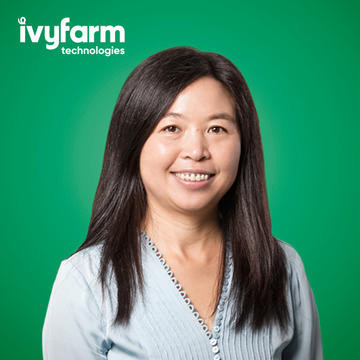Oxford University spin-out, Ivy Farm, to establish presence at OSCAR
Ivy Farm Technologies (“Ivy Farm”), an Oxford University spin-out holding promising technologies for the production of cultured meat, will establish a permanent presence within the OSCAR Technology Accelerator (OTA), to explore the China market and commercial opportunities. The company has revealed plans to become the first commercial producer of sustainable, cultured meat[1] for supermarkets and restaurants in the UK by 2023.
Cultured meat as “food industry of the future”
Ivy Farm was co-founded in 2019 by Professor Cathy Ye and Dr Russ Tucker, who met at Oxford University. Cathy Ye is Associate Professor from Oxford University, where she is also a member of faculty at the Institute of Biomedical Engineering. At OSCAR, she is one of the PIs leading research in regenerative medical engineering. Russ Tucker holds a PhD in Biomedical Engineering from Oxford University and was previously a commercial and strategic advisor to supermarkets.

Founder of Ivy Farm——Dr Russ Tucker

Founder of Ivy Farm——Prof Hua Ye
Ivy Farm Technologies (“Ivy Farm”), an Oxford University spin-out holding promising technologies for the production of cultured meat, will establish a permanent presence within the OSCAR Technology Accelerator (OTA), to explore the China market and commercial opportunities. The company has revealed plans to become the first commercial producer of sustainable, cultured meat[1] for supermarkets and restaurants in the UK by 2023.
Cultured meat as “food industry of the future”
Ivy Farm was co-founded in 2019 by Professor Cathy Ye and Dr Russ Tucker, who met at Oxford University. Cathy Ye is Associate Professor from Oxford University, where she is also a member of faculty at the Institute of Biomedical Engineering. At OSCAR, she is one of the PIs leading research in regenerative medical engineering. Russ Tucker holds a PhD in Biomedical Engineering from Oxford University and was previously a commercial and strategic advisor to supermarkets.
Ivy Farm’s non-GMO production process uses technology developed at Oxford University, in the same building that developed the Covid-19 vaccine. The company believes its technology is a game changer because of its unique cell growth ‘scaffold’ system which means that it is comparatively low cost and has the potential to be applied at scale. Ivy Farm sees huge opportunity for cultured meat in China, and its presence at OSCAR will help boost meaningful collaboration with local partners to stimulate further innovation in this area, supporting the development of the “food industry of the future”.
Cultured meat to bring tangible benefits to the planet
“The manufacturing process used by Ivy Farm adopts advanced tissue engineering techniques. By taking a small number of healthy cells from an animal, placing them in a bioreactor and exposing them to a perfect mix of vitamins and nutrients, we can replicate and produce great tasting meat in as little as three-to-four weeks,” said Cathy Ye, Ivy Farm co-founder. “The environmental and societal benefits of this process are numerous, including contributions to food safety and food security, and China stands to be a huge beneficiary in the years to come. We look forward to working with OSCAR to promote the growth of cultured meat in China and globally.”
The meat and dairy industry is estimated to account for 18 per cent of all greenhouse gas emissions – greater than all the world’s transportation systems combined. Yet demand for meat is predicted to rise by another 70 per cent as the world population grows to almost 10 billion by 2050 – placing an unsustainable burden on the environment[2]. Meeting the demand through traditional meat production would drastically accelerate deforestation. Ivy Farm believes cultured meat, which serves 8 of the UN’s sustainable development goals, is the answer given it is high quality, slaughter-free and comes with a significantly lower carbon footprint[3]. China has pledged to be carbon neutral by 2060 and cultured meat can contribute to the realization of this goal by reducing emissions in the food supply chain.
“If you look at the world around us, the way we currently produce and consume food is unsustainable. Already nearly half the worldwide harvest is required to feed livestock and that’s only going to go up. Cultured meat is the silver bullet – through cutting edge technology we can provide real, high-quality meat while saving the planet. Ivy Farm will be great for the environment and great for meat lovers, with the added benefit of avoiding antibiotics, growth hormones and bacterial contamination which are often associated with traditional farming techniques,” said Russ Tucker, Ivy Farm co-founder.

OSCAR Technology Accelerator
The OSCAR Technology Accelerator (OTA) is an inhouse incubator for OSCAR’s own spinouts and a soft-landing service provider for spinoffs of Oxford University in the UK. The OTA sits on the second floor of the OSCAR building and covers an area of 20,000 m2. Ivy Farm is the third company to have established presence in OTA, after Oxford University Innovation and Oxford MEStar.
[1] Also has been referred to as cellular meat, cultivated meat and lab-grown meat
[2] The UN Department of Economic and Social Affairs is predicting a rise in global population from 7.5 billion to close to 10 billion by 2050 and a rising middle class in Asia that are hungry for meat then demand for meat is expected to increase +70%.
[3] Carbon footprint of cultured versus farmed meat: https://cedelft.eu/wp-content/uploads/sites/2/2021/04/CE_Delft_190107_LC...
_190107_LCA_of_cultivated_meat_Def.pdf



